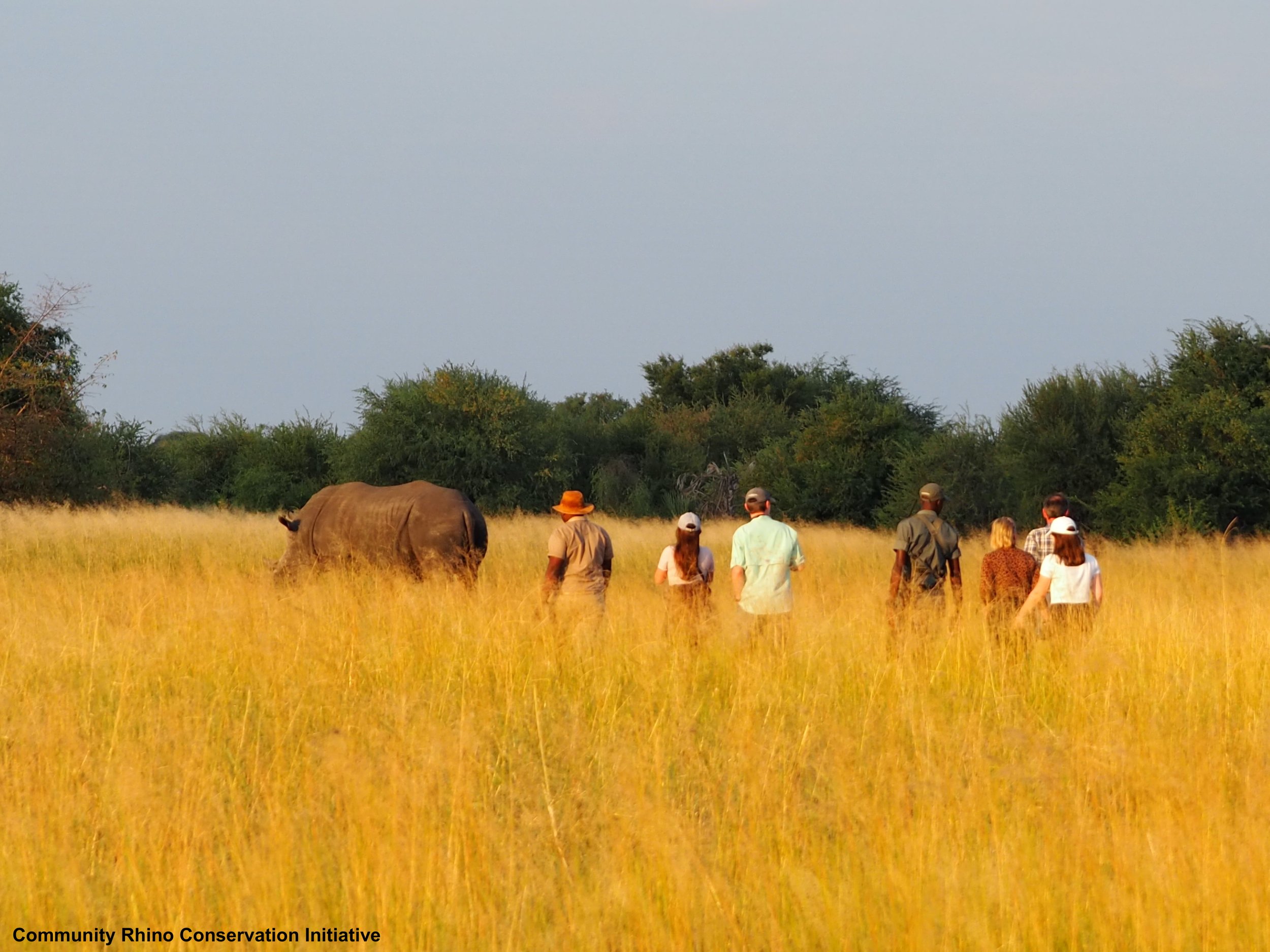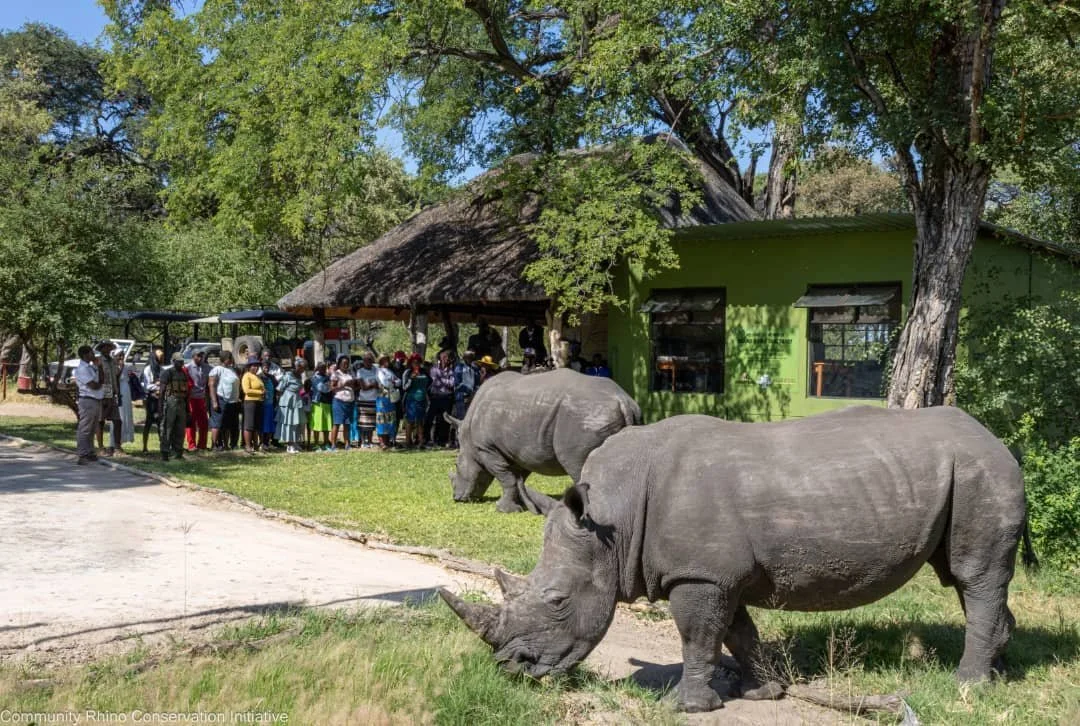INTEGRATING WOMEN INTO THE COBRAS UNIT
THE WATER4WILDLIFE TRUST
TSHOLOTSHO DISTRICT, ZIMBABWE
2026 GRANTEE | $15,000 | NOMINATED BY PANDION CONSULTING VIA KUSINI COLLECTION
The Water4Wildlife Trust’s Community Rhino Conservation Initiative (CRCI) is reintroducing white rhino to communal lands near Zimbabwe’s Hwange National Park, turning local communities into conservation stewards. This project uses rhino sanctuaries as a model to protect biodiversity, reduce human-wildlife conflict, and provide economic opportunities—especially for women—through conservation-related jobs and tourism.
The Issue:
Communities along the southern boundary of Hwange National Park face harsh living conditions, including poor soil fertility, drought, and frequent human-wildlife conflict as elephants destroy crops and predators kill livestock. Historically, this has led to subsistence poaching. Limited access to education and income-generating opportunities, particularly for women, further compounds these challenges. Without viable alternatives, communities often see wildlife as a threat rather than an asset, making long-term conservation efforts difficult to sustain.
Grant Award Use:
The $15,000 ATCF grant will support Phase 2 of CRCI by funding the recruitment and training of local women as wildlife protection scouts. This expansion includes integrating women into the Cobras Community Wildlife Protection Unit, building additional fencing to secure new rhino sanctuaries, and fostering greater community engagement in conservation. Funds will help cover salaries, supplies, and program coordination—ensuring women are not only included in conservation but are also empowered as leaders in their communities.
What Would a Successful Project Result In?
Success would mean a thriving population of white rhinos living safely on community-managed land, with local people—especially women—employed as scouts and benefiting directly from conservation-linked tourism. Human-wildlife conflict would decrease, new income streams would emerge, and community members would become active advocates for biodiversity protection and environmental stewardship.
Voices From The Community:
"The ATCF has been an extremely generous and helpful partner to the Community Rhino Conservation Initiative over the last few years. This most recent grant specifically supports the recruitment and training of women scouts, highlighting the ATCF's eagerness to advance the Initiative's innovative approaches, long-term goals and its expansion (in terms of both ecological scope and community impact). The ATCF grant helps ensure that the Initiative continues to generate important benefits for both people and wildlife, while implementing new activities and evolving to meet growing community appetite, especially that of women wanting to become scouts! We are incredibly grateful for this partnership!" — Hannah Tranter, Project Manager, Community Rhino Conservation Initiative







